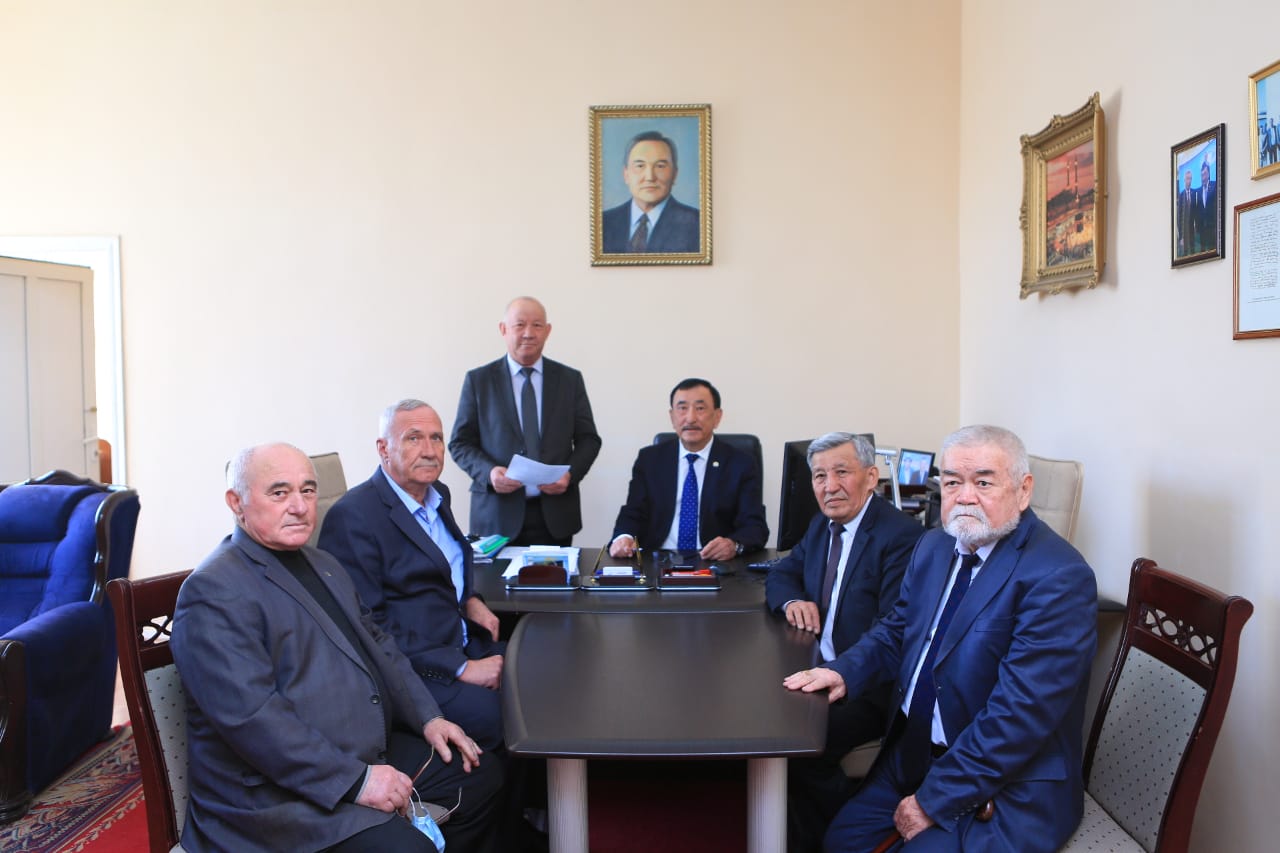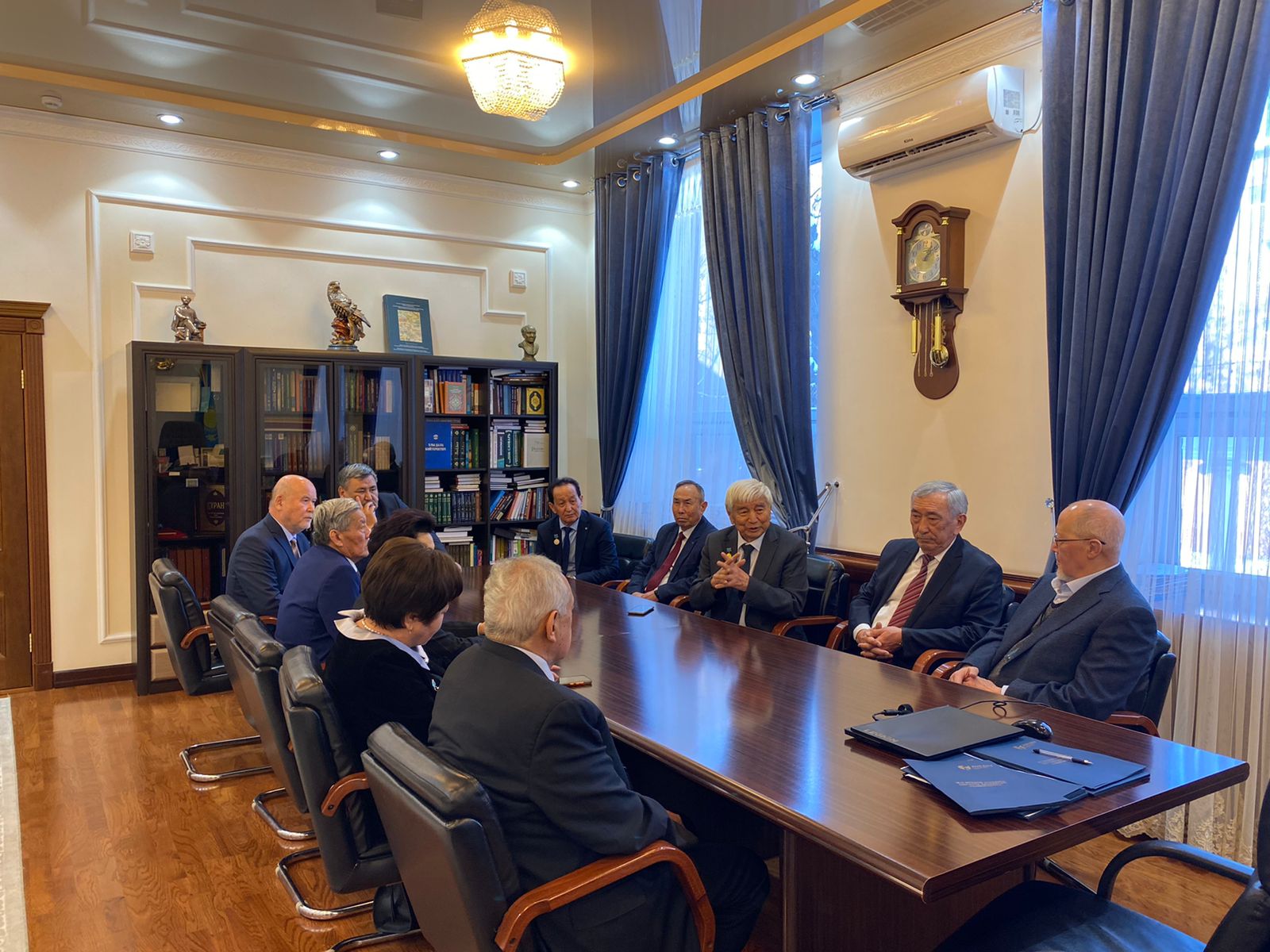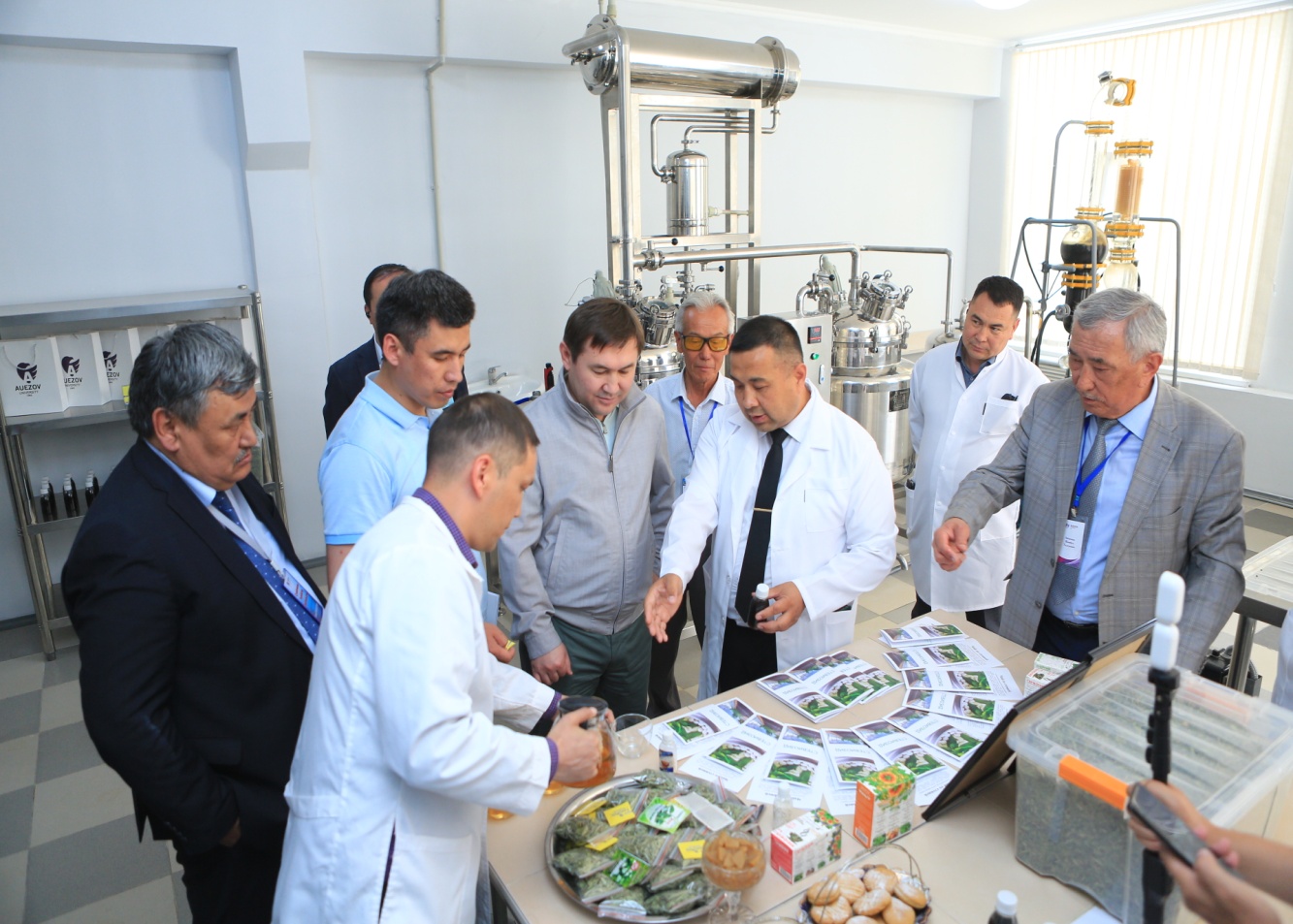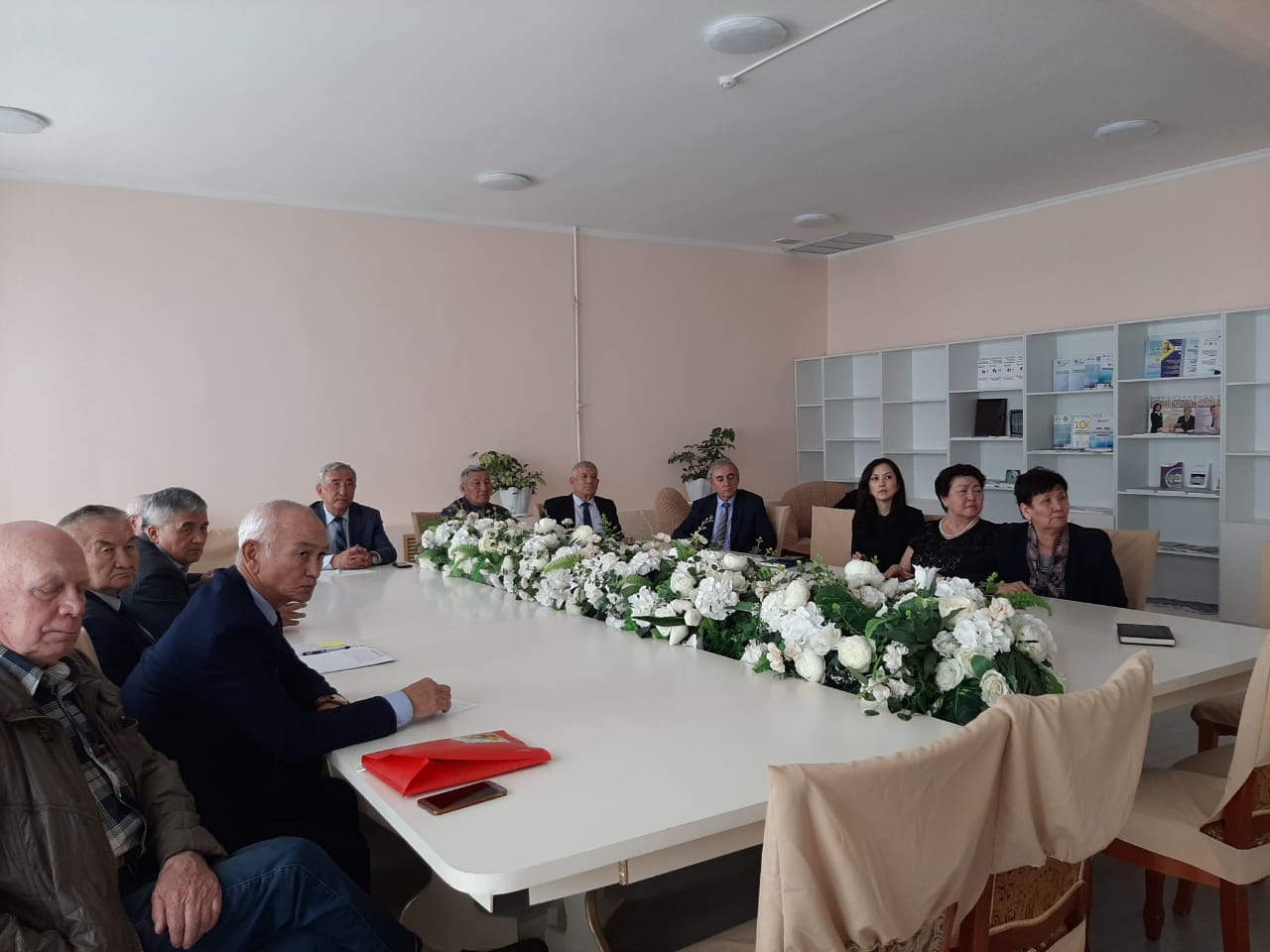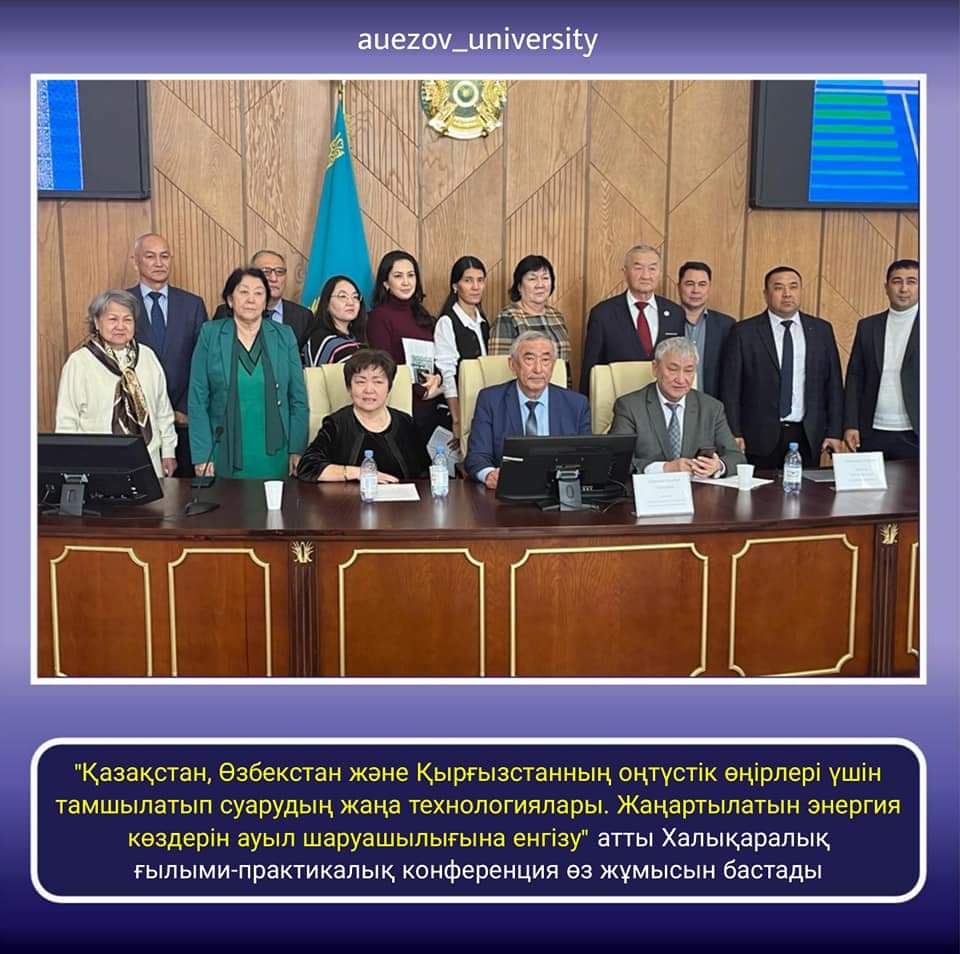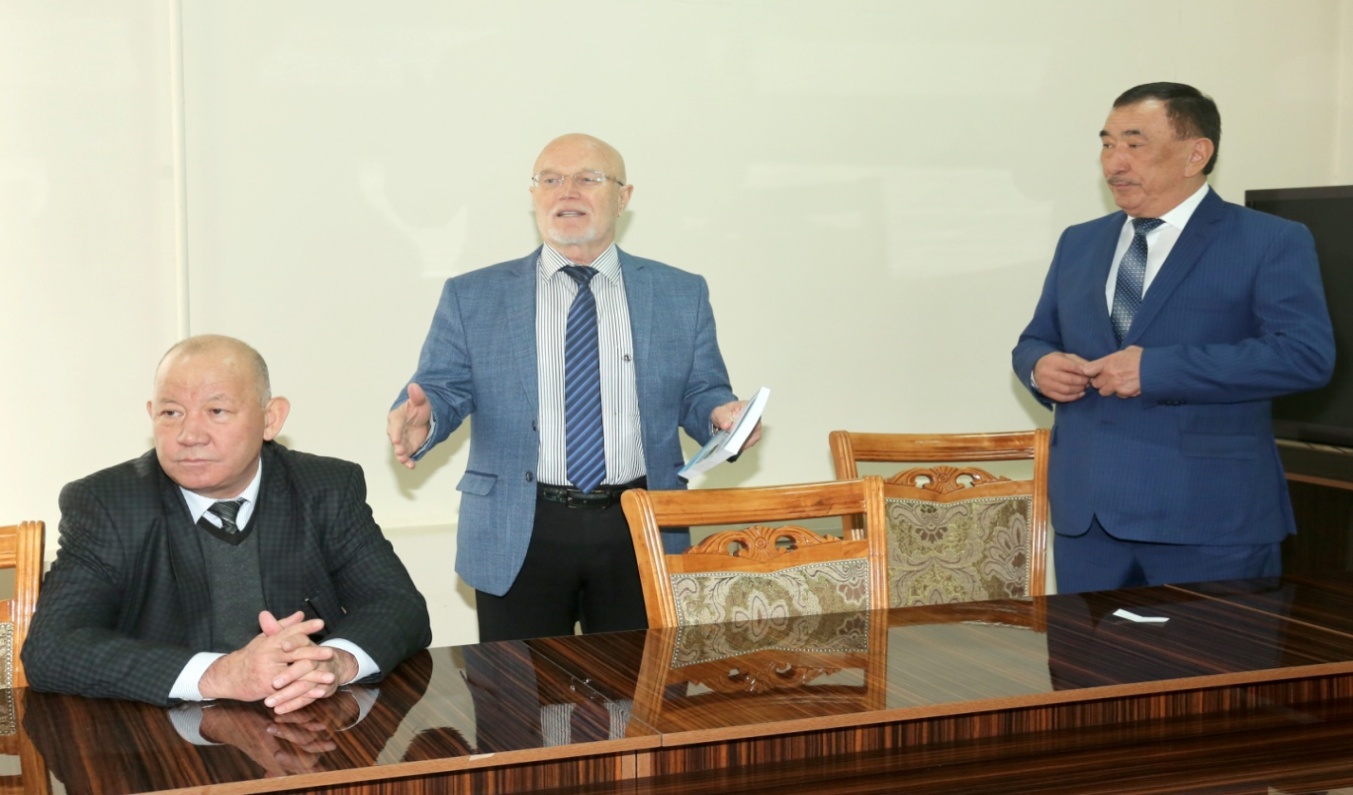The institute’s research laboratories also have close ties and cooperate with 10 leading universities, 18 research institutes, 2 scientific centers, 12 joint-stock companies and limited liability partnerships of Kazakhstan, with 44 foreign universities and 10 research institutes.
In particular, the research laboratory “High-temperature synthesis of composite materials” (Prof. Protopopov A.V.), under a collaboration program together with National Center of the Republic of Kazakhstan for Complex Processing of Mineral Raw Materials, prepared a project on the topic “Technology for producing composite materials with high absorption capacity for ionizing radiation” and won a grant for 2021-2023. 1 application for a useful model and 1 application for an invention were jointly filed. Methods for producing multilayer radiation protection composites were developed, their prototypes were manufactured. Together with National Center of the Republic of Kazakhstan for Complex Processing of Mineral Raw Materials, an application for invention “Method of producing multilayer composite material for radiation protection” was submitted to National Center for State Scientific and Technical Expertise.
An economic agreement for provision of research services was completed with National Center of the Republic of Kazakhstan for Complex Processing of Mineral Raw Materials of the Ministry of Science and Higher Education of the Republic of Kazakhstan for 2022. “Method for producing bimetallic armor plates from steel 110G13 with a wear-resistant working layer” was developed, an application for an invention was filed.
In 2022, the research laboratory “High-temperature synthesis of composite materials” together with National Center of the Republic of Kazakhstan for Complex Processing of Mineral Raw Materials completed an economic agreement (for 2.96 million KZT) for development of a technology for separating vanadium from a ferrophosphorus alloy containing vanadium and completed an economic agreement for the project “Technology for producing composite materials with high absorption capacity for ionizing radiation” (for the amount of 4.7 million KZT).
About scientific directions and schools. The institute’s leading scientific schools determine the main scientific directions, the coordinators of which lead the corresponding scientific seminars. For further development of scientific directions, it is necessary to carry out targeted training of scientific personnel, incl. through postdoctoral studies, sending to Master, PhD programs, postgraduate studies, scientific internships to leading technical universities of the Russian Federation and other CIS countries, on the basis of cooperation agreements with them, open joint scientific laboratories with them, participate in competitions of the Ministry of Science and Higher Education of the Republic of Kazakhstan with joint scientific projects with involvement of leading foreign scientists.
In the SWOT analysis of the scientific activities of SKU for 2022, one of its threats is the “aging” of scientists from scientific schools. Therefore, in order to increase the influx of young personnel up to 35-40 years old and retain promising scientists, the Ministry of Science and Higher Education of the Republic of Kazakhstan is introducing new advanced training programs for young scientists for research “Zhas Galym” and “Gylymi Talimger/Scientific Mentor”.
In order to “rejuvenate” the composition of the scientific staff of the institute’s laboratories, last year 5 young scientists who graduated our PhD programs were accepted and this work continues. One of them is the head of the laboratory – Azimov A.M. won the grant “Best University Teacher of the Republic of Kazakhstan – 2021”, Azimov A.M., Smailov B., Aimenova Zh.Ye. – in 2022 grant “Zhas Galym”, Utebayeva A. – grant “Young Scientist”.
Young scientists – heads of research laboratories, PhD doctors Azimov A.M., Smailov B., Aimenova Zh.Ye., Issa A., and Abzhalov R. submitted projects to the competitions of the Committee of Science of the Ministry of Science and Higher Education of the Republic of Kazakhstan “Young Scientist” and “Zhas Galym” (postdoctoral studies) for 2022, submitted joint projects with other universities and research institutes of the Republic of Kazakhstan for grant funding from the Committee of Science. Joint project of Aimenova Zh.Ye. with scientists from Institute of Plant Biology and Biotechnology of the Ministry of Science and Higher Education of the Republic of Kazakhstan won a grant of 79 million KZT, joint project for processing of oil sludge by Smailov B.M., Abzhalov R., Issa A. won a grant under the program-targeted financing for 300 million KZT.
The institute holds scientific seminars for young scientists, where, together with heads of scientific schools, the most relevant scientific directions are discussed in order to determine the topics of scientific research for the future in order to prepare projects for competitions of the Committee of Science of the Ministry of Science and Higher Education of the Republic of Kazakhstan, Fund of Science, etc. As a result of this work on preparation of scientific personnel, last year, the first doctoral students of our young scientists B. Mutaliyeva, A. Azimov, U. Nazarbek, successfully defended their dissertations at our dissertation councils.
Integration of science and education. The essence of a classical research university is the integration of the educational process and fundamental scientific research. This requires teachers with fundamental knowledge. World experience shows that leading countries have managed to integrate science and education quite effectively. This practice is also relevant for our university. Basic science is carried out in research laboratories, where associate professors and professors of chairs work part-time and participate in research projects, laboratory researchers participate in the educational process. Currently, 40% of the institute’s research staff are involved in the educational process and are engaged in teaching activities. In the future, the role of research laboratories will increase in the joint training of scientific personnel – doctoral and master students, as well as specialists – bachelors, incl. technical direction, for this purpose, scientists from the institute’s research laboratories are more widely involved in the supervision of scientific work and research of doctoral and master’s students, the work of dissertation councils (currently 4 researchers are members of 3 dissertation councils). All this will expand the use of scientific research results in educational environment for improving study programs, promoting the development of research potential and increasing the competitiveness of specialists. Our task is to train in-demand specialists with an entrepreneurial culture who will generate innovations based on a technically equipped educational ecosystem.
In order to integrate science and education, strengthen scientific ties between chairs and research laboratories, improve the quality of training for master and doctoral students performing dissertation works at research laboratories, their study programs include disciplines in the profile of the relevant research laboratories of the university. This contributes to the development of scientific schools and targeted training of scientific personnel for laboratories.
The research university must be entrepreneurial, capable of ensuring its financial sustainability in the face of increasing competition between universities. In 2022, the research laboratories submitted 51 projects to competitions, of which 15 were for grant funding, 8 were for commercialization, and 7 were for program-targeted financing. As of 1 December 2022: 3 projects won program-targeted financing (873 million KZT), 3 project won commercialization (900 million KZT), 6 projects won grants (335.7 million KZT), 3 projects won “Zhas Galym” (56 million KZT), 1 project won “Young Scientist” (44.9 million KZT). In total, 18 projects worth 2 billion 117 million KZT are being implemented.
Since the establishment of the institute, funding for scientific projects of laboratories has increased: in 2020 – grant projects worth 65 105 million KZT, economic agreement research works worth 4 million KZT were carried out, in 2021 – worth 208.5 million KZT and 6.16 million KZT, respectively, in November 2022. – worth 817.6 million KZT + 492.2 million KZT and 16.7 million KZT. The volume of research funding for 1 year increased by 609 million KZT. In equivalent per 1 researcher, the specific volume of research funding in 2021 was 4.6 million KZT, in 2022 – 18.3 million KZT. Using these funds, the laboratories purchased various scientific equipment.
The institute actively participates not only in state-funded grant projects, but also in initiative economic agreement research works and commercialization of results of scientific and scientific-technical activities.
Currently, 3 projects have won the program-targeted financing competition of the Committee of Science of the Ministry of Science and Higher Education of the Republic of Kazakhstan: 1) On ensuring the quality of drinking water – in the amount of 323 million KZT (Prof. M.I. Satayev, PhD Azimov A.M.); 2) On processing of agricultural raw materials – in the amount of 250 million KZT (Alibekov R.); 3) On processing of oil sludge – in the amount of 300 million KZT (Smailov B.). 2 projects have won the competitions of JSC “Fund of Science” for commercialization: 1) On organizing the technology for production of low-clinker cements based on various industrial wastes – in the amount of 500 million KZT (Prof. Sarsenbayev B.K., Aimenov Zh.T.); 2) Development of fertilizer mixtures – in the amount of 300 million KZT (Prof. Zhantasov K.T.).
In 2023, according to the scientific and technical assignment No. 17 “Creation of intersectoral research and production environmental complex for development and industrial implementation of new effective technologies for processing industrial wastes of the Republic of Kazakhstan”, together with Satpayev University, Aimenov Zh.T. and Kolesnikov A. won the program-targeted financing for 900 million KZT, according to the scientific and technical assignment No. 96 “Development of technologies for organic production and processing of agricultural products and formation of regional technological parks and engineering centers in the agro-industrial complex”, Alibayev N. presented a comprehensive project of the program-targeted financing for 4 billion KZT.
Until the end of 2023, based on the results of additional competitions for commercialization of scientific projects and program-targeted financing projects, an even increase in funding is expected.
Scientists of the institute submitted a total of 51 projects to various competitions of the Committee of Science of the Ministry of Science and Higher Education of the Republic of Kazakhstan.
Scientists of the institute have published 286 works in three years, in 2020 – 97 articles, in 2021 – 189 articles, in 2022 – 153 articles (as of 1 December 2022), including: 48 – in leading scientific journals in Scopus and Web of Science databases, 14 – in editions recommended by the Committee for Quality Assurance in Education and Science of the Ministry of Science and Higher Education of the Republic of Kazakhstan, also 6 monographs and textbooks, 22 patents were received. 5 scientists of the institute are the authors of world scientific discoveries – Volnenko A.A., Korganbayev B.N., Aimenov Zh.T., Iztleuov G., Shevko V.M., four were awarded “Kurmet” medal (Aimenov Zh.T., Protopopov A.V., Zhantasov K.T., Anarbayev A.A.).
The research university is a scientific and educational complex with a developed innovation infrastructure, including educational bases, research institutes, research laboratories, etc. In this direction, M. Auezov SKU, of which our institute is an integral part, has achieved certain results. In 2022, in order to implement the task of increasing competitiveness, our university took part in seven global and two national rankings, taking 443rd position in the QS world ranking.
Taking into account the new tasks set by the head of the state, K-Zh.K. Tokayev, and the Ministry of Science and Higher Education of the Republic of Kazakhstan, the institute in its Development Strategy determines the most promising and in-demand scientific directions. At the same time, along with fundamental and applied research, the priorities of research laboratories are innovative activities of the entrepreneurial type, the introduction of innovations into the economy of the region.





